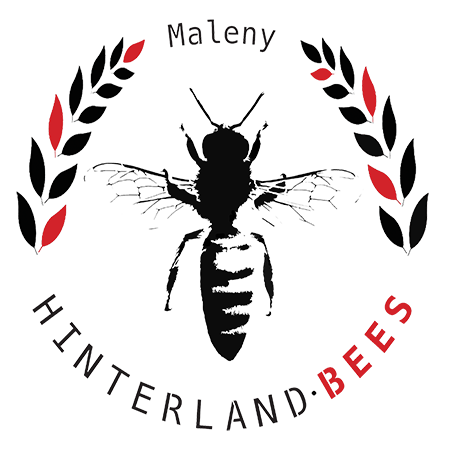Do They Sting?
If there is one question I get more often than any other it is “Do they sting you when doing beehive removals?” and the short answer is YES. Why honey bees sting is a more complex question to answer.
Suiting-up to work with honey bees is a real drag. Not only is it time consuming, the extra layers can make working conditions pretty uncomfortable, particularly during an Australian summer or when working in confined spaces. Taking a few stings is all part of the job and a small price to pay for working in comfort.
It’s important to know that honey bees in Australia are generally not considered aggressive. Fortunately we do not have any Africanised bees, otherwise know as “killer bees”, that contribute to so much misunderstanding and fear in this country. In Australia, European honey bees are however defensive of their hive. The temperament of different colonies can range from very docile to highly defensive.
It is also important to understand the difference between a hive and a swarm. A hive is an established home for a colony of bees. In contrast a swarm is one their way to a new home and are intact homeless. This is why a swarm of bees poses little threat. While they are an intimidating sight to the casual observer, they are homeless and have no hive to defend therefore unlikely to sting anyone who just leaves them alone.
Stings hurt me just as much as anyone else so there are precautions I take. I always have my smoker going and I’m constantly reading the signs and taking actions in response. Being able to observe, listen, smell and touch gives me the confidence to work with relatively little protection and remain calm.
Observation is my first line of defence when trying to avoid stings. Taking a little time to checkout a colony prior to working with them is a good start. An agitated colony will appear more active or flighty. I might find more bees staring back at me or bees start flying out when I open a hive lid. In contrast a nice docile colony will quietly go about their work almost as if I’m not there.
There can also be a notable difference in the sounds coming from a hive to indicate potential trouble. A queen-less hive will make a collective droning hum, and a queen-less hive can be more agitated. The sound of bees buzzing around my head is also a good sign to don the veil and put some smoke into the air. All colonies have guard bees and these workers are often the ones heading out to give warning bumps before taking the final fatal action of stinging. The buzzing of these guard bees tends to be more high-pitched, a result of them flying a higher speeds in defence of their hive.
Finally a good sense of smell is essential in recognising danger. Bees use a complex array of pheromones to communicate with each other and as a collective. They are able to produce an alarm pheromone which alerts other bees to a threat and to be on defence. This pheromone has a very distinctive smell similar bananas or nail polish remover. Smoke is a great masking agent and can nullify the scent of alarm pheromone.
Bees don’t like smoke and therefore it can be used to “herd” bees, drive them back into their box or move from a certain location. There is also a somewhat overstated theory that bees smelling smoke sense an imminent bush fire making them engorge on honey from the hive (thus distracting them from defending the hive). While there maybe some element of truth to this theory it is unlikely that the guard bees would leave their post even under threat of fire. By far the most important role smoke has in beekeeping is the suppression of the bees' alarm pheromone.
The release of the this pheromone is also why I rarely use gloves when working with bees. Gloves are clumsy and obviously inhibit my sense of touch. It is so much easier to unknowingly squeeze, startle or squash a bee while wearing gloves. Whenever I get a sting I try to immediately smoke the spot otherwise I can almost guarantee coping another sting in exactly the same location as it has been marked with alarm pheromone. While gloves might protect the wearer from stings, these stings become a target for more and more stings, the domino effect of this unchecked release of alarm pheromone can very quickly alter the entire temperament of the hive. This is why a smoker is an essential tool for any beekeeper.
